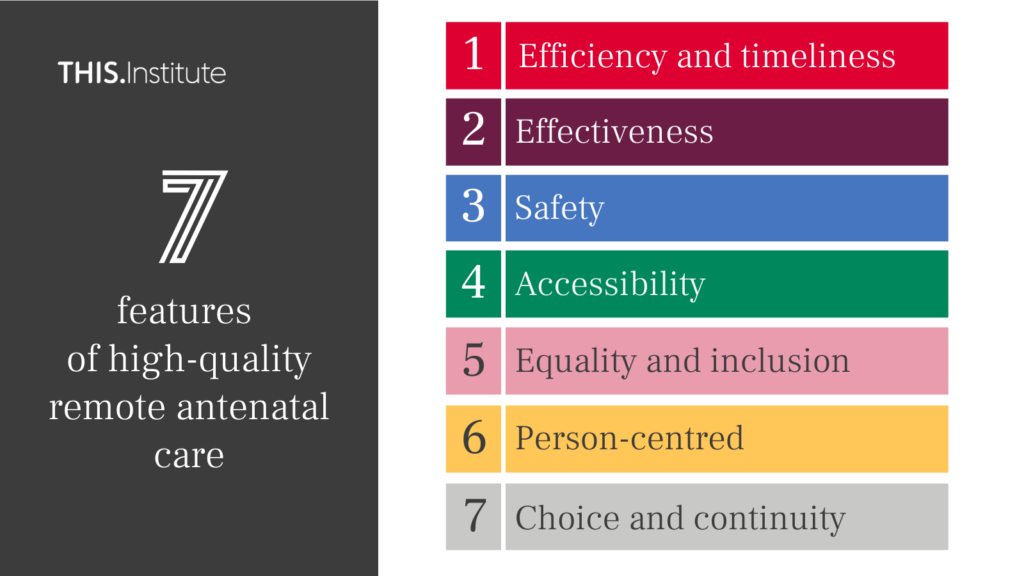Hinton L, Dakin FH, Kuberska K, et al, Quality framework for remote antenatal care: qualitative study with women, healthcare professionals and system-level stakeholders, BMJ Quality & Safety Published Online First: 12 May 2022. doi: 10.1136/bmjqs-2021-014329
A quality framework for remote antenatal care: qualitative study with women, healthcare professionals, and system-level stakeholders

Why it matters
Antenatal care (sometimes called pregnancy care) involves monitoring the wellbeing of pregnant women and their babies. It provides women with the opportunity to discuss options for care and offers a safe space to ask questions and seek reassurance. High-quality antenatal care is crucial to improving birth outcomes and reducing the risk of maternal and fetal mortality and morbidity.
Traditionally delivered face to face, the COVID-19 pandemic disrupted the usual provision of antenatal care. From March 2020, remote consultations, where the pregnant woman receives care via telephone or video, were recommended where possible. Between May and July 2020, almost 90 per cent of antenatal appointments in the UK were conducted remotely rather than face-to-face. As with other healthcare services that shifted to remote provision during the pandemic, there is enthusiasm for retaining aspects of remote antenatal care, post-pandemic.
It is important that the future role, design and organisation of remote antenatal care is based on good evidence. Yet research on remote antenatal care undertaken prior to 2020 is surprisingly limited.
Approach
Our study aimed to characterise what good quality remote antenatal care should look like, from the perspectives of those who use, provide and organise it, using the real-world experience of the shift to remote antenatal care during the pandemic.
This UK-wide study, undertaken in September-December 2020 involved interviews and an online survey with women who were pregnant or had been pregnant since March 2020, maternity professionals, managers of maternity services, and other relevant stakeholders.
Participants included 106 women and 105 healthcare professionals, managers or stakeholders.
What we found
Our findings identified both advantages and disadvantages to providing antenatal care remotely. Although those we interviewed and surveyed said they valued the convenience and flexibility of remote care, they also identified possible risks relating to safety, effectiveness and person-centredness. There were concerns that remote care could potentially undermine trusting relationships and continuity, increase inequalities, and lead to possible safety risks.
The views expressed by participants enabled development of a framework of the domains of quality that are the most relevant to those using, providing or organising remote antenatal care:
- efficiency and timeliness
- effectiveness
- safety
- accessibility
- equity and inclusion
- person-centredness
- choice and continuity
Participants in our study reported that remote care was not straightforwardly positive or negative across these domains, and that it needs to be understood as a whole system, of which antenatal consultations are just one part.
Our findings suggest that a hybrid model should be offered. It should be flexible enough to accommodate the needs and priorities of different groups of women, and should be highly sensitive to equity of care and inclusion.
The quality framework developed through this study will help guide those developing evidence-based policy and practice for remote antenatal care by drawing attention to the range of domains that need to be considered.











